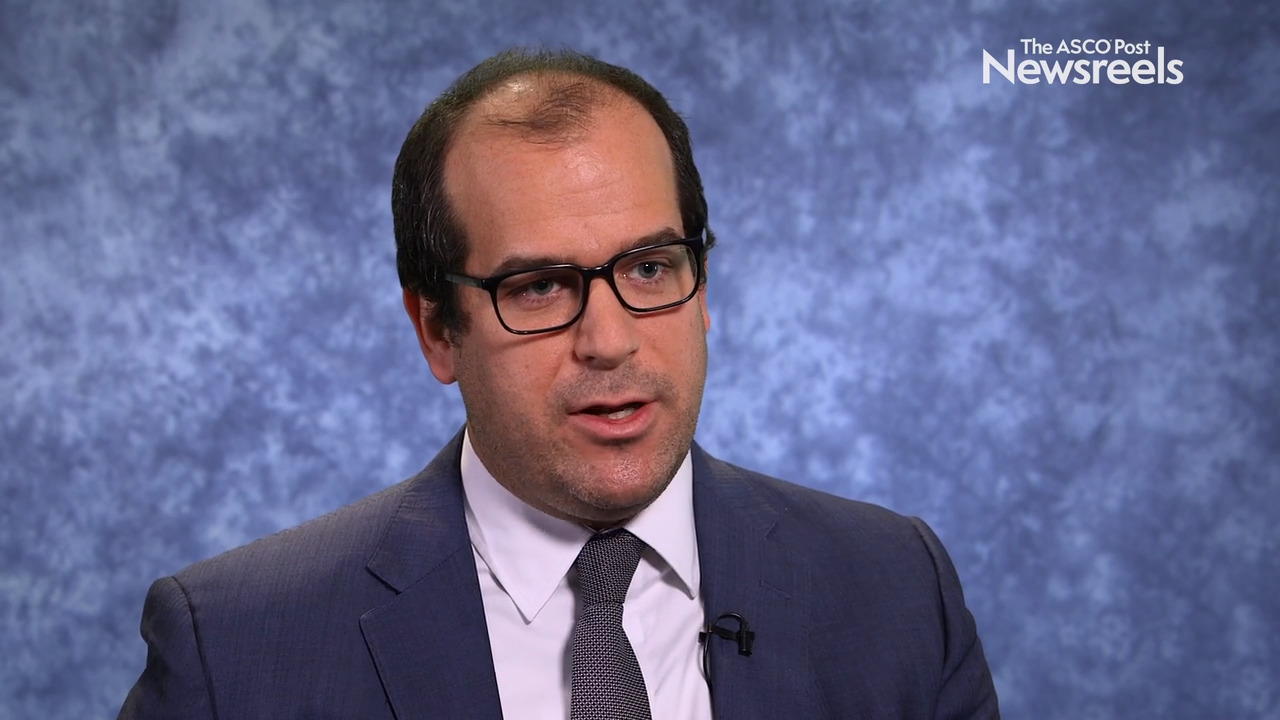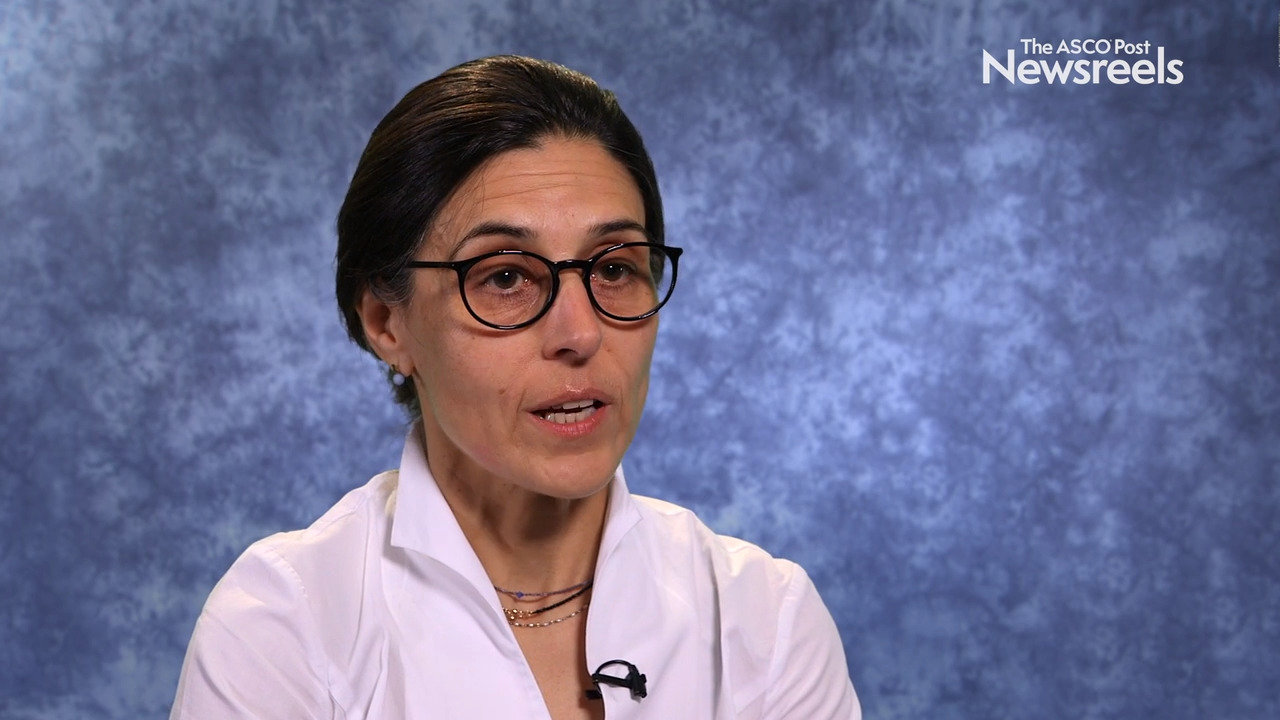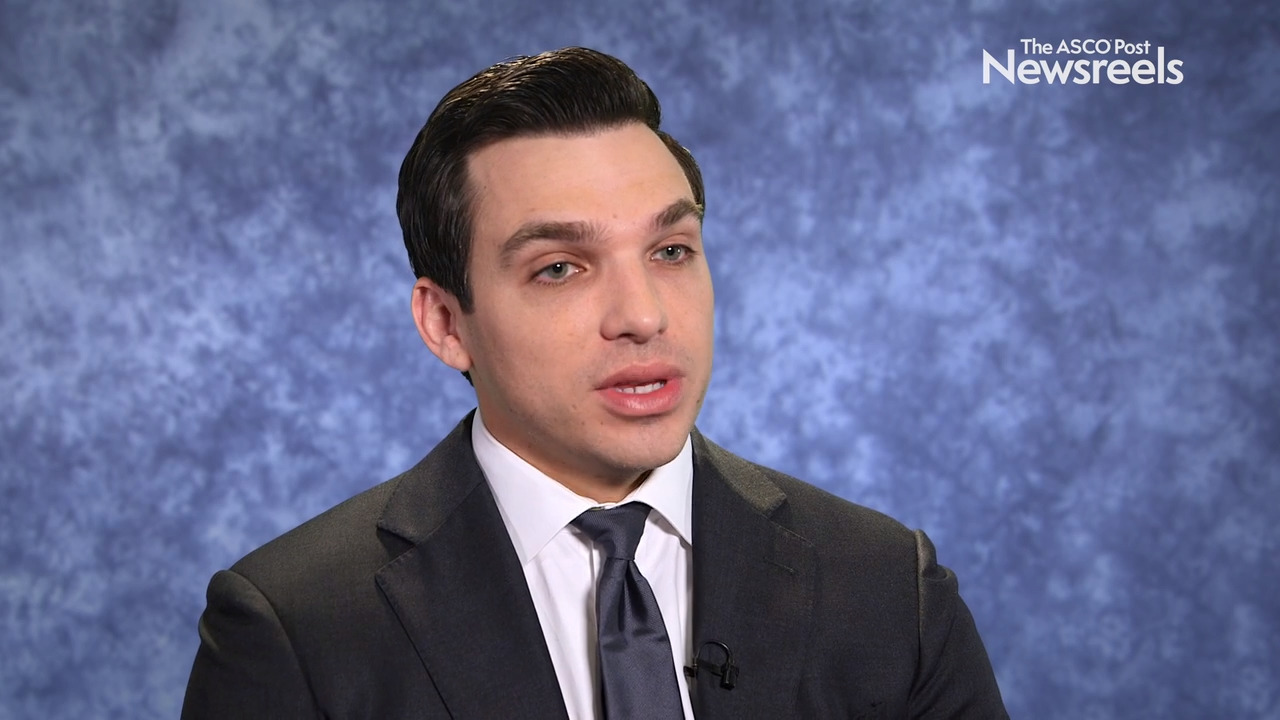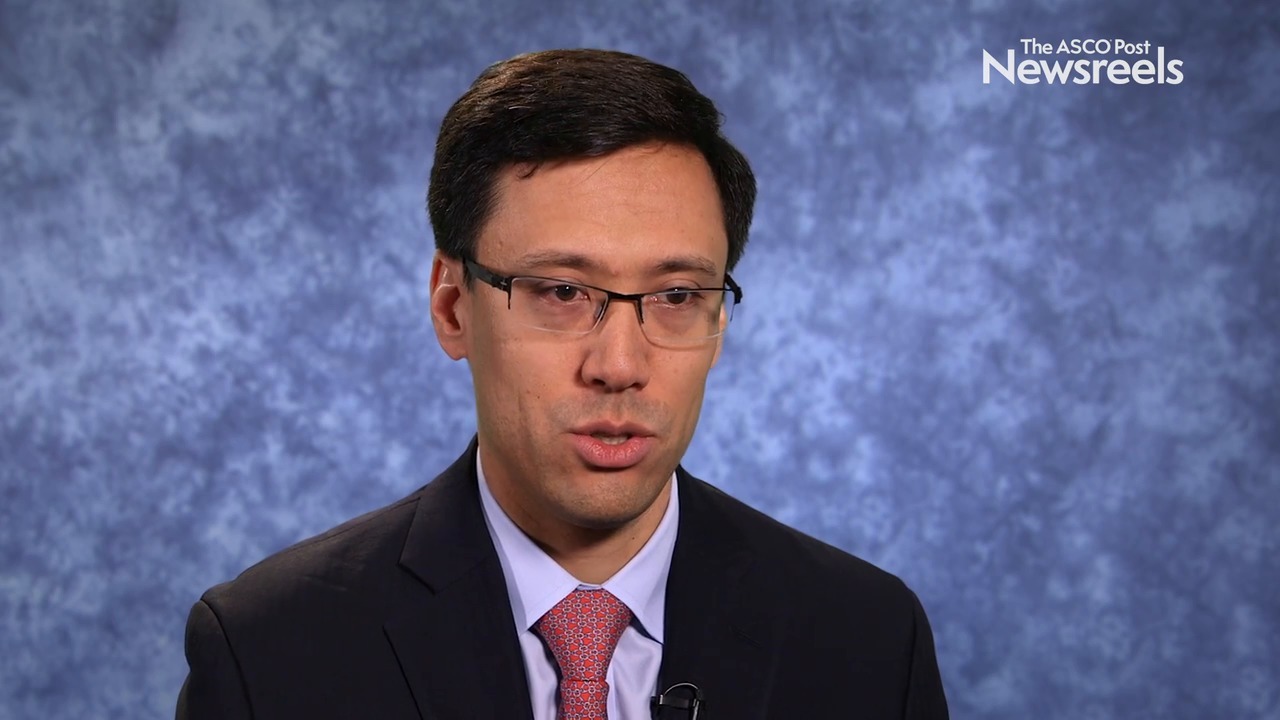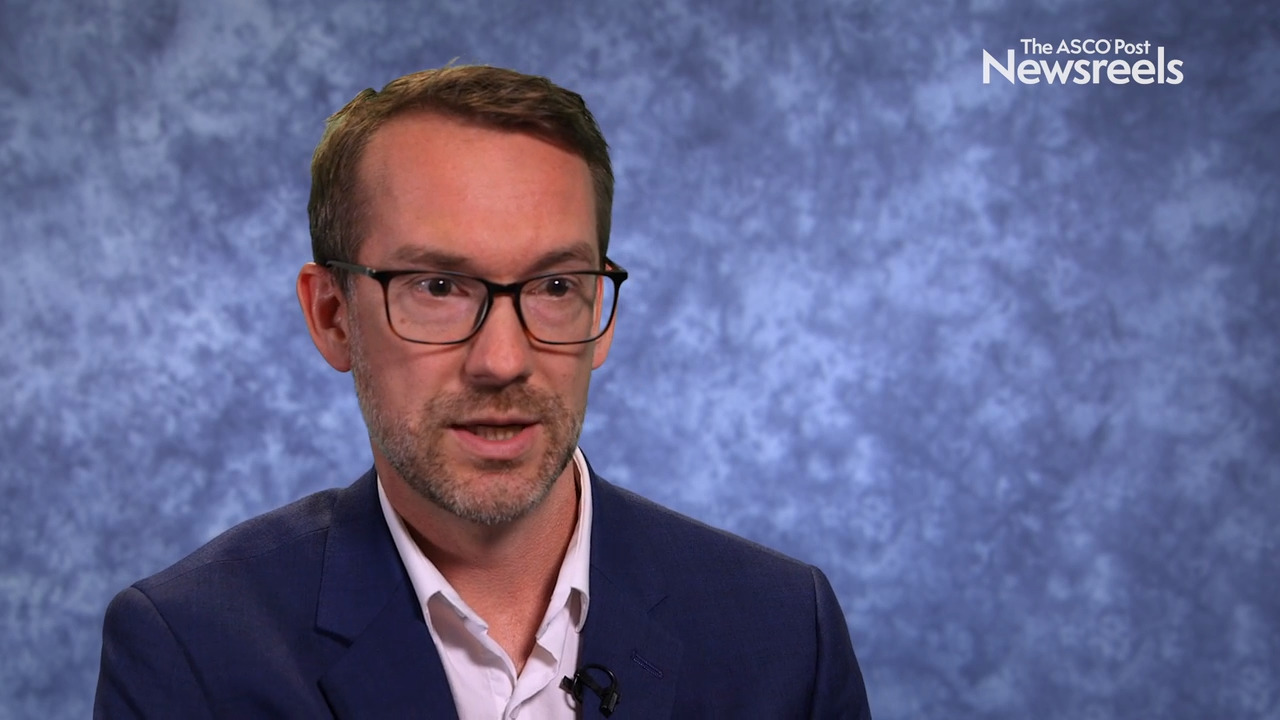Andrew Kneebone, MD, on an ANZUP Trial on Adjuvant vs Early Salvage Radiotherapy After Prostatectomy
2019 ASTRO Annual Meeting
Andrew Kneebone, MD, of Royal North Shore Hospital, discusses phase III study findings showing that at 5 years, biochemical control was similar between adjuvant and early salvage radiotherapies, the latter sparing half of the men potential side effects of radiotherapy without any significant compromise in outcome (Abstract 77).
Daniel M. Trifiletti, MD, of the Mayo Clinic, discusses study findings showing that, between two different radiation doses (30 Gy/10 fractions vs 37.5 Gy/15 fractions), there was no difference in the time to cognitive failure, tumor control, or overall survival for patients with brain metastases (Abstract 19).
Alejandra Méndez Romero, MD, PhD, of Erasmus University Medical Center, discusses findings that show high local control rates with stereotactic body radiation for patients in this large published series, most of whom had colorectal cancer (Abstract 230).
Daniel E. Spratt, MD, of the University of Michigan, discusses phase III study findings showing that 2 years of antiandrogen therapy increased cardiac and neurologic toxicities, as well as mortality from causes other than prostate cancer, in men with low levels of prostate-specific antigen after prostatectomy who received adjuvant early salvage radiotherapy (Abstract LBA1).
Andreas Rimner, MD, of Memorial Sloan Kettering Cancer Center, discusses study findings showing that, for patients with stage III non–small cell lung cancer, durvalumab reduced the rate of and time to disease progression vs placebo and also reduced the number of new distant lesions (Abstract LBA6).
Robert Olson, MD, of the BC Cancer Centre for the North, discusses a secondary analysis of the SABR-COMET trial, which showed there was a small magnitude decline in quality of life in both arms of the study but no associated detriment with stereotactic ablative radiotherapy (Abstract 148).
